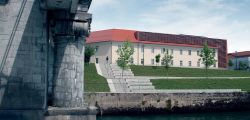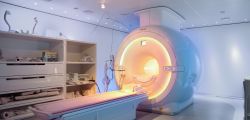Best Practices in Life Science Careers Published
Members of Alliance4Life recently conducted the mapping of best practices in career systems in life sciences research, including the self-assessment of human resources (HR) systems in twelve research organisations in Central and Eastern European (CEE) countries, and are committed to working hard to offer better conditions for the career development of their researchers. The detailed report presents a very useful set of best practices and is also freely available to other research organisations that are striving to improve their human resource practices in order to attract, develop and motivate talent.
The international alliance of twelve leading research institutions and universities operating in the field of life sciences have worked intensively for the past six months to perform self-assessment programmes in order to select best practices in HR areas. Members of Alliance4Life discussed the career systems applied at individual institutions and defined nine main priorities and areas of interest: 1) HR excellence in research-award implementation, 2) career development/system and career track, 3) mobility and internships, 4) strengthening of group leaders as managers, 5) recruitment: an increase of both quantity and quality of applicants, 6) internationalisation and recruitment of people from abroad, 7) welcome services and integration support, 8) diversity, equal opportunities, and women in science, and 9) culture in science, and culture of the institute as a HR tool.
Based on self-assessment, and with provided inputs by all partners, a summary of best practices in career systems in Life Science research was formulated. All partners were asked to discuss the career system in their institution and make a self-assessment in order to grade the proposed areas in three grades: missing system, basic and advanced.
Basic self-assessment confirmed that HR systems in research organisations in the CEE region are rather less developed. A positive aspect of this exercise was the realisation that in all nine HR areas, at least one institution was graded as advanced and can therefore share its best practices with the others. Among the least developed areas were: strengthening of group leaders as managers, welcome services for foreign employees and integration support, culture in science, and culture of the institute as a HR tool.
Out of all twelve partners of the A4L, six institutions are holders of the prestigious HR Excellence in Research Award. Out of six holders of the HR Excellence in Research Award, CEITEC MU and the Medical University of Lodz evaluated themselves as “advanced” in the system of the award implementation. CEITEC MU focuses on the overall organisation of the “HR Award” and presents the process from the decision to apply for the award, the application preparation and continuous work on the implementation of the action plan and its assessment. CEITEC has integrated the HR Award implementation into the standard operation of the institute. The Medical University of Lodz focuses on the implementation phase. As good practice they present the experience with a two-step study – quantitative and qualitative research, which was designed by the Department of Sociology of MUL and conducted among all stages of researchers at the university.
The “career development/system and career track” area could be considered as the most advanced in Alliance4Life, measured by the highest number of advanced grades (three Alliance4Life members) and by the low number of “missing system” grades (two Alliance4Life members). CEITEC MU presents its formal career system and its practical implementation in the form of career development opportunities for various groups of researchers. LIOS also presents a structure and rules of its career system and adds two interesting tools (motivation system and internal grants for students). The University of Tartu presents how the university responded to the amendment of the national law, which gave universities more flexibility in developing career models, including the adoption of principles of retiring with the emeritus status.
Regarding mobility and internships, clear strategy, concrete goals and experiences are presented by the University of Tartu and by the Medical University Sofia. The University of Tartu emphasises that they signed a considerable number of bilateral partnership agreements with universities abroad which provide for exchanges of students and researchers, as well as other cooperation in teaching and research. Around 20% of academic staff participated in mobility; within various programmes, staff members travelling abroad in the year was close to 70%. The Medical University Sofia has officially signed more than 150 institutional agreements for academic exchange and 33 memorandums of academic cooperation. They present stages in the process of implementing the actions of mobility as well as consequences of good practices for the implementation of teacher mobility and overall cooperation between the universities.
Best practices in career systems in life science research also identified some shortcomings to be addressed in the future. There is a challenge in the area of combining careers in medical/life sciences (research at the university/research centre and at hospital) – none of the Alliance4Life members considered its system as “advanced”. We are still missing best practices in this area. And we are missing a standardized monitoring tool for the grading and assessment of progress in HR/career systems. An important aspect that complicates the implementation of advanced systems from one institution to another is the national context (national legislation, and related (de)centralisation of HR management). The partners identified general factors/enablers enhancing positive, institutional change that are valid across not only nine HR areas, but also across individual countries and institutions. These factors make career system upgrades functional and sustainable in the long run.
In the CEE, efficient human resource management and modern career progression systems are often absent. Innovating and implementing the career systems of the partner institutions is expected to tackle this issue. Best practices in career systems in life science research gives us a starting point for the future evaluation of progress in HR management of all Alliance4Life members. The resulting set of best practice measures, proven through operation, will be presented to the board, representing all member institutions, at the Alliance4Life´s community meeting in April 2022. The partners will internally discuss how to use the best practice to improve their HR management, and how it could lead to better scientific performance and employee satisfaction. In addition, the achieved results will be used for the formulation of the consecutive deliverable “report on advances in career system upgrades”, with the aim of monitoring progress at the level of Alliance4Life members and their HR management systems.
Download the full text of the deliverable Best Practices in Life Science Careers





